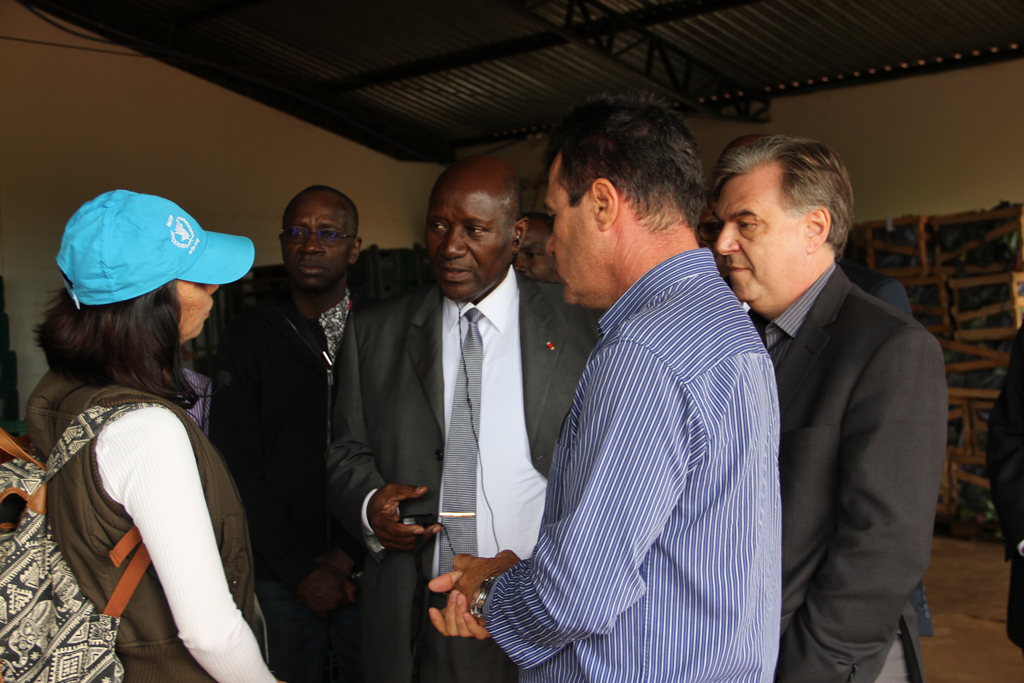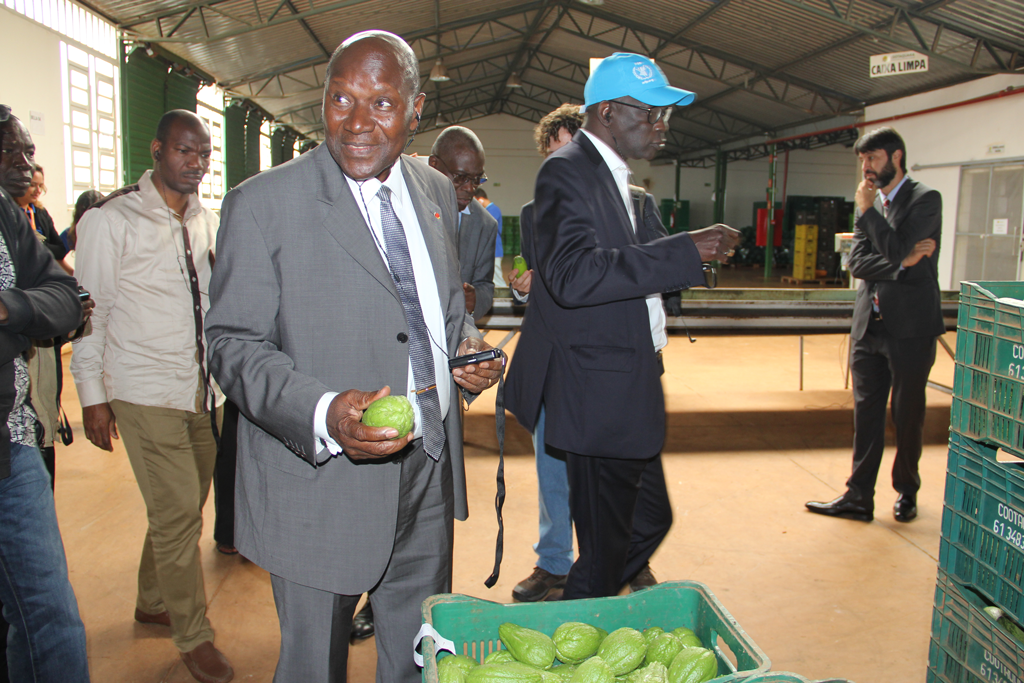
To see first-hand the impacts of Brazilian policies in rural dwellers, the Côte d’Ivoire delegation participating in a study visit to Brazil with the WFP Centre of Excellence made a field trip to a smallholder farmers’ cooperative near Brasilia. The aim of the visit was to learn about the role of public food purchase in promoting rural development.
The cooperative visited by the delegation was created in 2001 by 22 farmers. They started selling 60 metric tons of food per month, and the main product was pepper. Almost 17 years later, the cooperative has 300 members, produces 40 food items, and commercializes 400 metric tons of food each month. A group of 50 people work in the cooperative, most of them from farmers’ families.
Cooperation
Vice-president Daniel Kablan Duncan was curious about how this growth happened, if it was due to the simple addition of new members of if the cooperative attracted new farmers to the region. According to Maurício de Rezende, president of the cooperative, both phenomena happened once the cooperative was established.

At the beginning, the cooperative was highly dependent on the public programmes that purchase food from smallholder farmers, including the school feeding programme. Once their business was well structured, with support from the Brazilian Enterprise for Technical Assistance and Rural Extension (EMATER), the participation of public procurement in their budget decreased. Currently, 80 percent of their produce go to big food retailers and supermarket chains.
“There is a saying that an image is worth a thousand words. Coming to the field is crucial for us to see first-hand how everything works”, said vice president Duncan. “We also have cooperatives in Côte d’Ivoire, and it is important to take advantage of this cooperative example to see how we can diversify our food production”.




